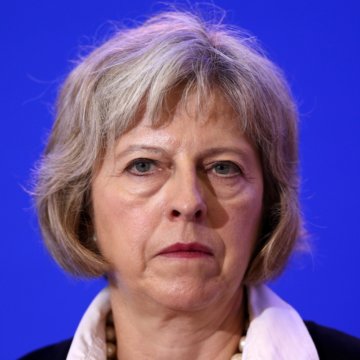- About
- Topics
- Picks
- Audio
- Story
- In-Depth
- Opinion
- News
- Donate
-
Signup for our newsletterOur Editors' Best Picks.Send
Read, Debate: Engage.
Probably the most bizarre aspect of our perennially televised political environment, is the fact that often politicians have to talk about events. Not promises - any idiot can go in front of a camera and promise something. It's super easy. Talking about events - recent events - is however a different matter. This is when they have to talk about the present or recent past, and basically, make it work for them. They have to encapsulate the event in a political narrative for their advantage - and while this might seem like an easy thing to do, sometimes, it's like watching someone in a burning house tell you everything's absolutely 100% fine.
Theresa May did this during her election campaign when she made an enormous u-turn on a manifesto promise, and then told journalists 'Nothing has changed'. But more astonishingly, after an election which cost her part the majority in government, and left the dominant narratives of the past 12 months in tatters, Theresa May stood in front of a camera, and told the world she was ready to lead the UK through tough negotiations with "certainty".
It was like something out of a bizarre satire - Black Mirror maybe - where reality has become melded entirely with the ridiculous fictions of a tabloid narrative.
The problem is not only that the UK has now delayed its own exit from the EU (thereby causing uncertainty on the continent), but also, it seems that now for liberal Western democracies, talking in unreal terms like Trump is now very mainstream. This might be what people have been calling "hypernormalisation" - but I actually think this is a positive problem. I think this because May's conflict with reality actually shows how would-be tyrants like her and Trump can be brought down - by letting them run away with their imaginations to a disbelieving audience.
Whether such a strategy would ever work for the likes of Erdogan or Duterte, I highly doubt. But for once, it seems like the 24-hour media has actually produced a positive outcome.
